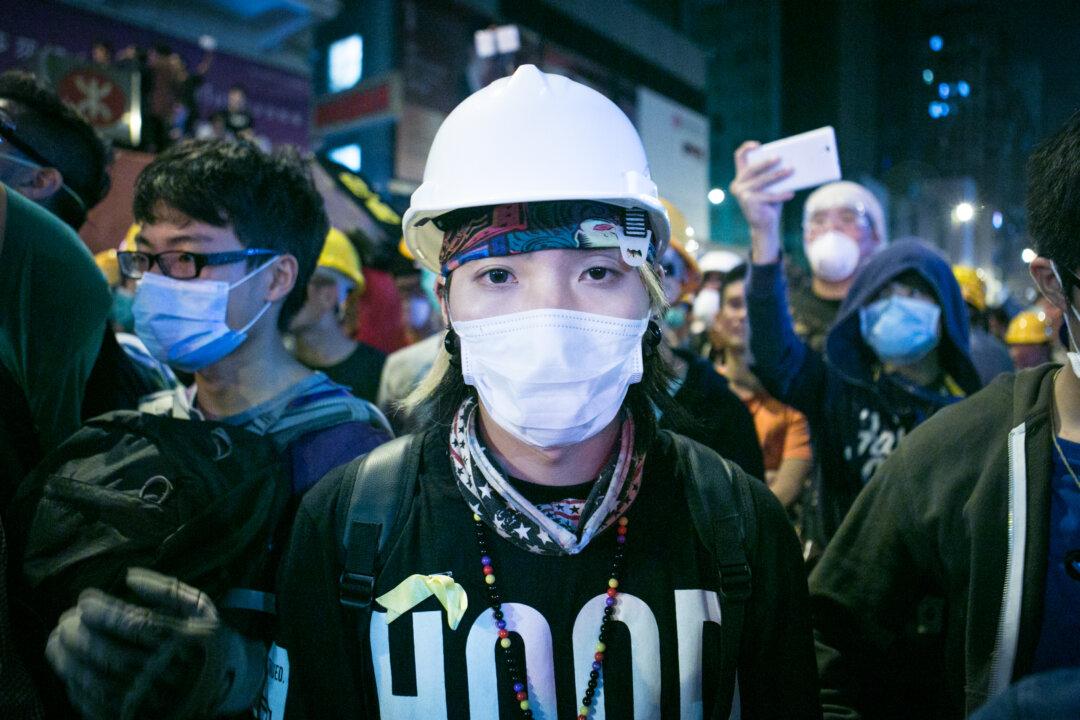
Thousands of people hold umbrellas as they wave their cell phones in Admiralty, Hong Kong, on Oct. 28, 2014, calling for greater democracy. There is no clear end in sight for the protests that have stretched on for more than a month. Benjamin Chasteen/Epoch Times





